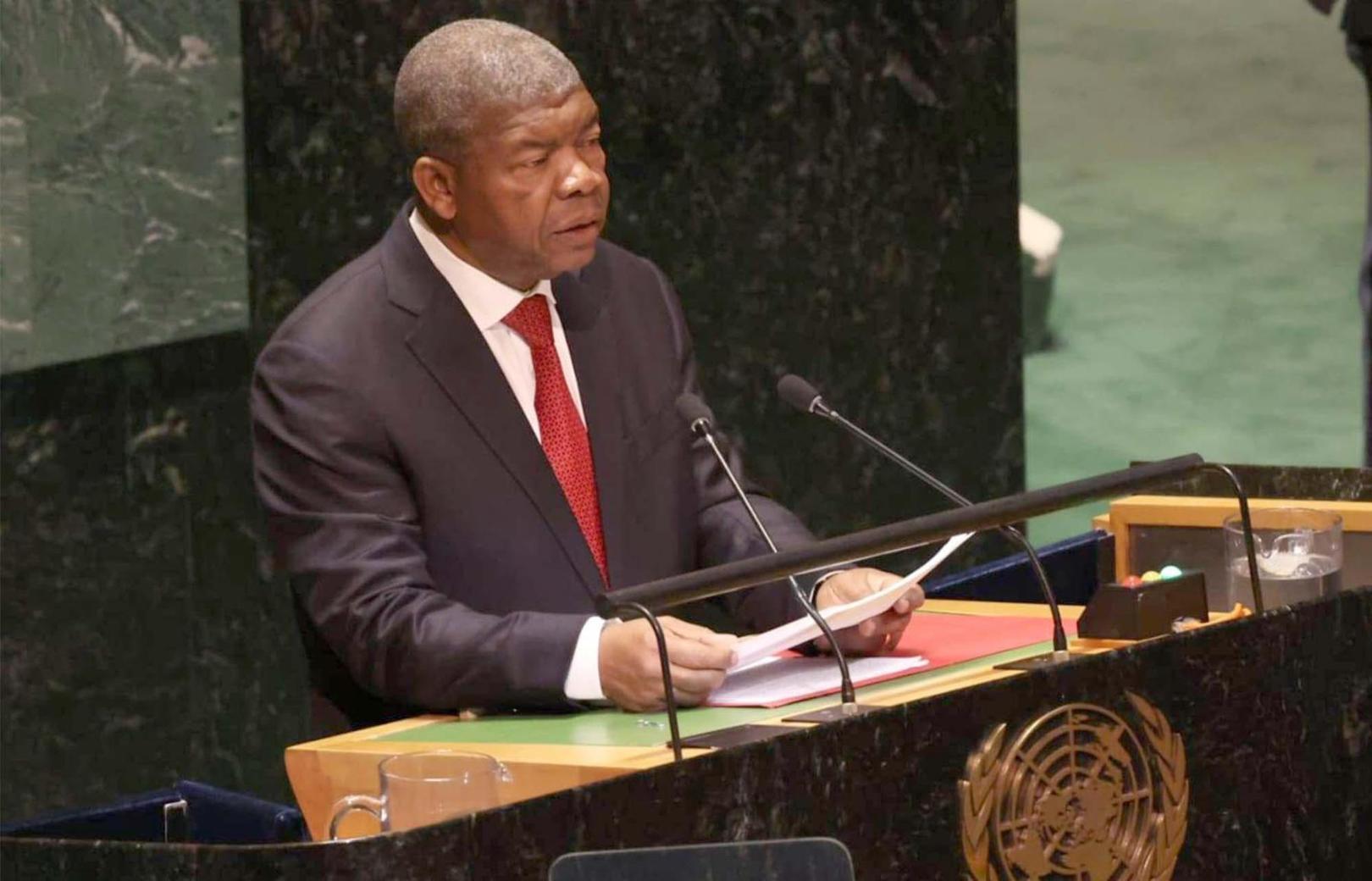Africa-Press – Angola. Angolan President and African Union Chairperson, João Lourenço, took the floor at the 80th United Nations General Assembly to launch a strong appeal for the responsibility of major powers and the revitalization of multilateralism, warning that the world is heading for a “hecatomb” if the logic of force and double standards persist.
In a speech marked by direct criticism and the evocation of the lessons of history, João Lourenço highlighted the contradiction of the powers that, in the 20th century, played a decisive role in the defeat of Nazism, fascism, and apartheid, but which today are involved in invasions, annexations of territories, and the overthrow of legitimate governments.
“The same powers that liberated peoples from oppression today carry on wars and subversions that erode the moral authority of the United Nations,” he said.
João Lourenço also highlighted Angola’s role in the search for African solutions to African conflicts, recalling diplomatic efforts in the Sahel, Sudan, and the eastern Democratic Republic of the Congo.
He emphasized that, although they did not result in the expected ceasefire of December 2024, these efforts continue to serve as a foundation for regional and international initiatives for peace.
“Angola’s contribution has been honest and genuine, always seeking to create conditions for dialogue for lasting peace,” he stated, reiterating the country’s commitment to continental stability.
Regarding the Middle East, he was blunt in denouncing the worsening violence in Gaza and the exclusion of Palestine from this General Assembly.
“Nothing is worse than denying a voice to a people who have the right to an independent state. The Palestinian people cannot be confused with Hamas. There are no peoples, much less terrorist children,” are strong phrases that can be gleaned from the Head of State’s speech regarding the crisis in Palestine.
He classified the Israeli response as a “policy of extermination,” emphasizing that Israel has the right to its existence and the release of the October 7 hostages, but cannot continue the systematic destruction of Palestine.
In the same vein, he rejected the hesitations and silence of the international community, which, he stated, “seem to legitimize the expansion of the war” and contribute to the loss of UN credibility.
Referring to the war in Ukraine, João Lourenço criticized options focused solely on military calculations and called for direct negotiations that also involve Russia and Europe.
“We cannot waste this opportunity for peace. Persisting in the logic of victory by weakening the adversary is paving the way for an escalation with unpredictable consequences, not only for Europe, but for the world,” he warned.
The President of Angola also advocated the immediate lifting of the embargo against Cuba and condemned the unilateral sanctions imposed on Zimbabwe and Venezuela, which “produce no other result than the suffering of their populations.”
He recalled Cuba’s role in the fight against apartheid and in the independence of Namibia, considering it “unjust and arbitrary” to classify it as a state sponsor of terrorism.
The climate issue also played a central role in his speech.
He reaffirmed Angola’s commitment to the Paris Agreement, the UN 2030 Agenda, and the African Union’s Agenda 2063, highlighting the importance of COP30 in Brazil as an opportunity to advance the fight against global warming.
Institutionally, he urged urgent reform of the UN Security Council, in accordance with the Ezulwini Consensus and the Sirte Declaration, which provide for two permanent and five non-permanent seats for Africa.
For the President, without this change, it will not be possible to fully implement the “Compact for the Future,” adopted in 2024, nor to restore legitimacy to the UN.
The intervention was also an appeal to historical memory, as the Head of State recalled that, even during the Cold War, dialogue and a balance of interests prevented global confrontation.
Today, he warned, the great powers “walk with their backs turned,” distancing themselves from even minimal commitments, which places humanity between preserving peace or facing a new world war. “Only multilateralism can save us from a catastrophe,” he concluded, reaffirming the central role of the UN as the only entity with the legitimacy to build global consensus and halt the degradation of the international order.
For More News And Analysis About Angola Follow Africa-Press






